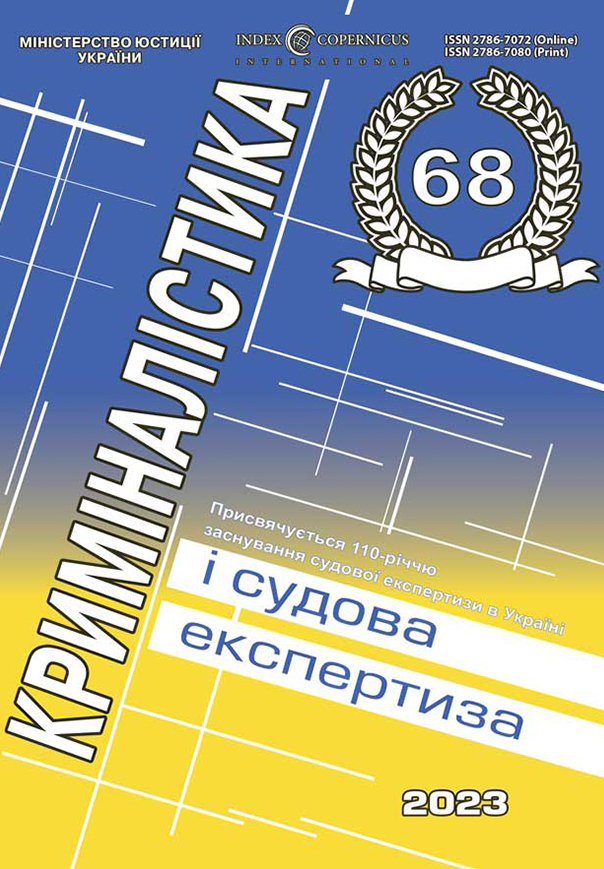
DOI: https://doi.org/10.33994/kndise.2023.68.23
Yu. Koniushyn
The article is devoted to the analysis of the essence and certain aspects of the admissibility of leading questions in criminal proceedings. Those provisions of the modern doctrine, which categorically refuse to use this type of question in proof only on the basis that their formulation contains an answer, a part of an answer, or a hint of it, are called into question.
Each verbal-meaningful question, in general, really contains some initial information. The admissibility or inadmissibility of a leading question must be categorized not by the presence of introductory (basic) information in it and its suggestion, but by its origin, the moment of its appearance in the communicative act, compliance with the requirements, namely: 1) legality; 2) ethics, in particular: a) a manipulative leading question is inadmissible, which invariably prompts the addressee to provide the information desired by the addressee or to behave in accordance with his interests (make a decision, etc.); b) it is necessary to evaluate and take into account which social values the addressee will give priority to as a result of asking him a leading question (that is, the addressee must compare the purpose and objectives of criminal proceedings with familiar social values: family, family relations, etc.); c) that the information obtained as a result of the leading question (confession of guilt, positive reaction to involvement in a criminal offense or awareness of it, etc.) should not be considered (evaluated) as the only evidence of guilt, that is, that this information should be confirmed by other evidence as well; d) the question does not contain wording in an aggressive manner; e) a situation will not be created in which the addressee, by asking a question, directly or veiledly encourages the addressee to consider existing facts that have not yet been established in reality or are considered to exist based on information that has already been refuted; e) a situation will not be created in which the addressee, in the basis of the question, directly or veiledly operates with evidence that was previously recognized as inadmissible by the court; f) a situation will not be created in which the addressee, with a leading question, introduces a topic (idea) for discussion that was not previously the subject of direct questioning; g) a situation will not be created in which the addressee prompts the addressee to make an evaluative judgment with a leading question, etc.
Key words: suggestion, structure of questions, admissibility requirements, investigative actions, evidence, criminal case.










